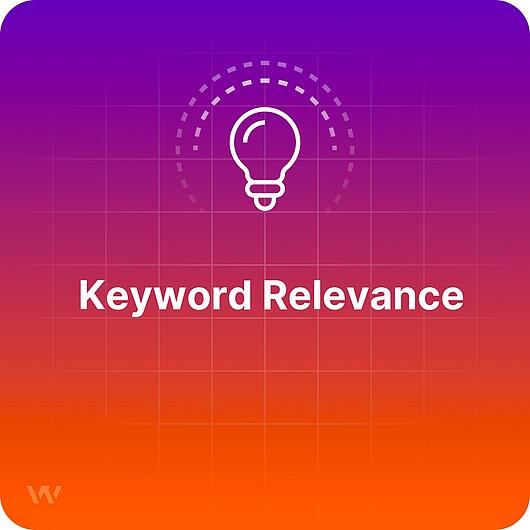- Why Us?
- Features
White Label
For SaaS Platforms & Agencies
Provide our complete analytics suite to your clients, directly within your own interface and with your/their own branding. Discover Analytics-as-a-Service and White Label Analytics. Great benefit, minimal effort.
- Pricing
- White Label
- Success Stories
- ResourcesGetting Started
Keyword Relevance

TL;DR
Keyword relevance refers to the match between a certain keyword and the content of a page. It is used by search engines in order to understand the content of a page and decide on how to rank that content. Current keyword relevance assessments are done using artificial intelligence, which takes context, synonyms and homonyms into account.
What is Keyword Relevance and why is it important?
Keyword relevance is a term that defines the extent to which a certain keyword or set of keywords is considered to be relevant for the content of a web page. Keyword relevance is used by search engines to determine what a web page is about. Based on this and other factors, the search engine decides how to rank web pages in relation to a search query.
In the past, search engines would judge relevancy mostly by the number of times a keyword was used in the text, as well as where it was used (extra SEO points for having the keyword in the <title>, the <h> tags etc.) Currently, with advancements in artificial intelligence, search engines use advanced neural matching to better understand a text. In this context, keyword relevance still matters, but it is not essential to have an exact match between the search query and the website text. In fact, in some cases, exact matches can even be considered suspicious if they happen because of over-optimization and keyword stuffing. It is important to write keyword-focused content, but also to keep it readable.
Modern search engines understand context, synonyms, homonyms and other complex linguistic structures. They can also make logical connections between the words your website already ranks for, compare the stats to the competition and reach a conclusion based on that. Relevance is also combined with brand power. This means that no matter how relevant your content is, it won’t rank higher than established brands for the same keywords.

